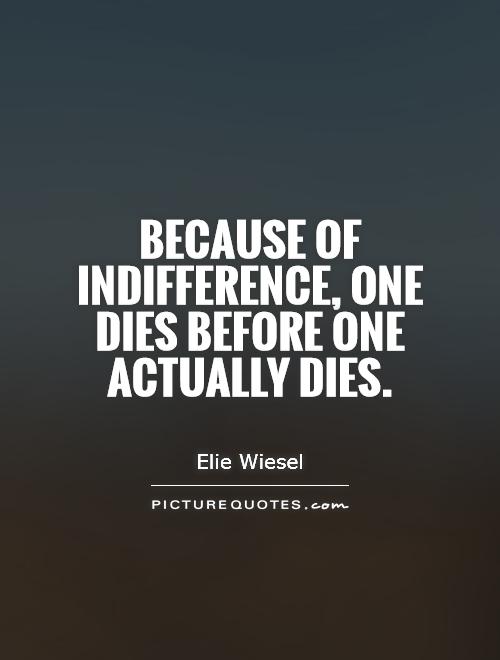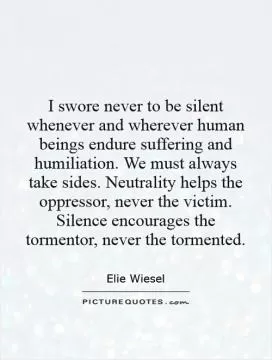Because of indifference, one dies before one actually dies

Because of indifference, one dies before one actually dies
Elie Wiesel, a Holocaust survivor and Nobel laureate, once said, “Because of indifference, one dies before one actually dies.” This powerful statement speaks to the devastating impact of apathy and inaction in the face of suffering and injustice. Wiesel himself experienced firsthand the horrors of the Holocaust, where millions of innocent lives were lost due to the indifference of others.During World War II, Wiesel was just a teenager when he and his family were deported to Auschwitz, the infamous Nazi concentration camp. He witnessed the atrocities committed against his fellow Jews, including the brutal treatment, starvation, and mass extermination. Throughout his time in the camp, Wiesel struggled to make sense of the cruelty and indifference that surrounded him. He questioned how humanity could allow such atrocities to occur and why so many turned a blind eye to the suffering of others.
Wiesel’s experiences during the Holocaust deeply impacted his worldview and shaped his belief in the importance of bearing witness to injustice. He understood that indifference was not just a passive act, but a dangerous force that could lead to the destruction of human dignity and life. In his memoir, “Night,” Wiesel reflects on the profound impact of indifference, writing, “The opposite of love is not hate, it's indifference. The opposite of art is not ugliness, it's indifference. The opposite of faith is not heresy, it's indifference. And the opposite of life is not death, it's indifference.”
Wiesel’s words serve as a powerful reminder of the dangers of remaining silent in the face of injustice. Indifference allows for oppression and suffering to continue unchecked, ultimately leading to the death of the soul before the body perishes. Wiesel dedicated his life to speaking out against indifference and advocating for human rights, using his platform as a writer and activist to shine a light on the darkest chapters of history.












 Friendship Quotes
Friendship Quotes Love Quotes
Love Quotes Life Quotes
Life Quotes Funny Quotes
Funny Quotes Motivational Quotes
Motivational Quotes Inspirational Quotes
Inspirational Quotes